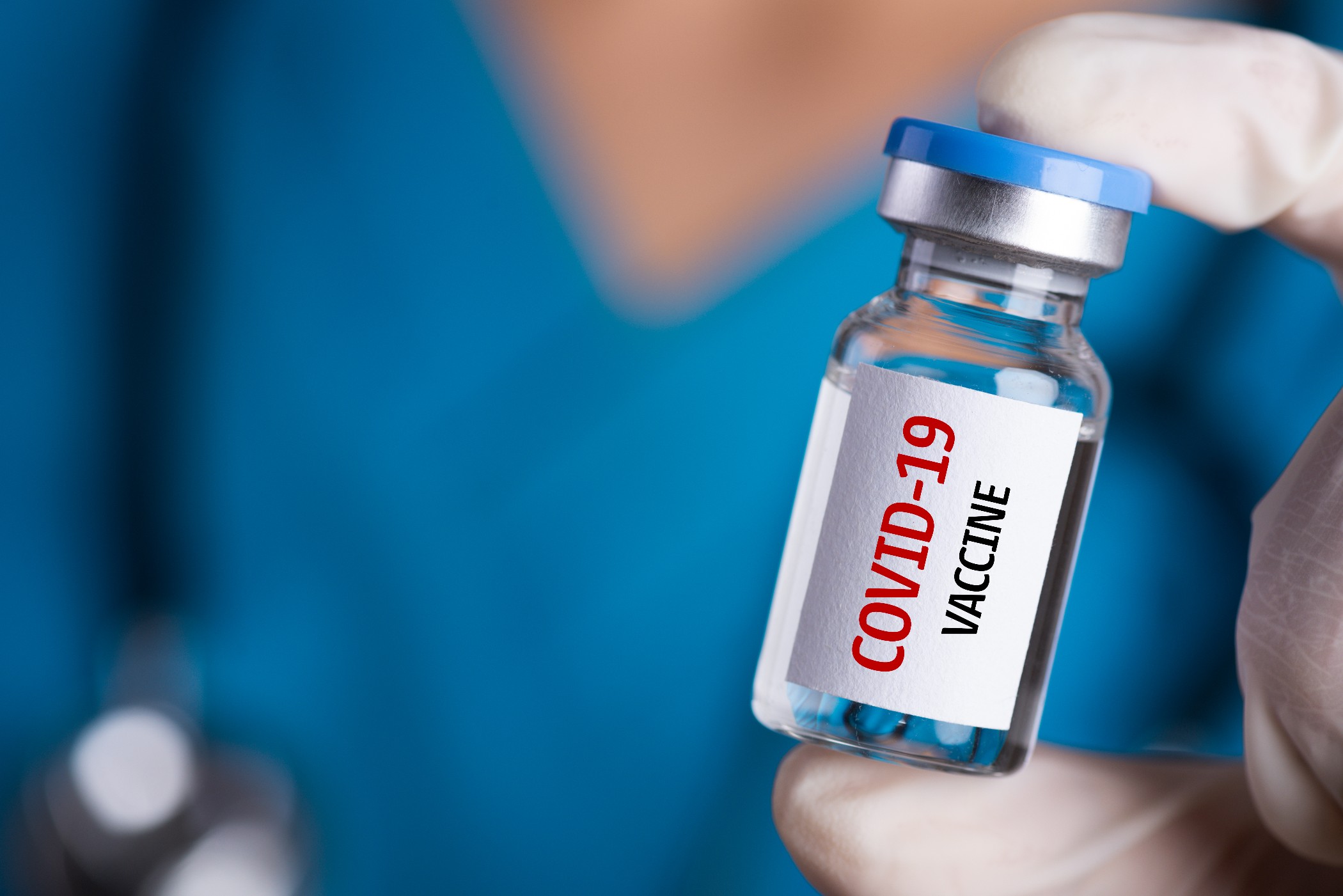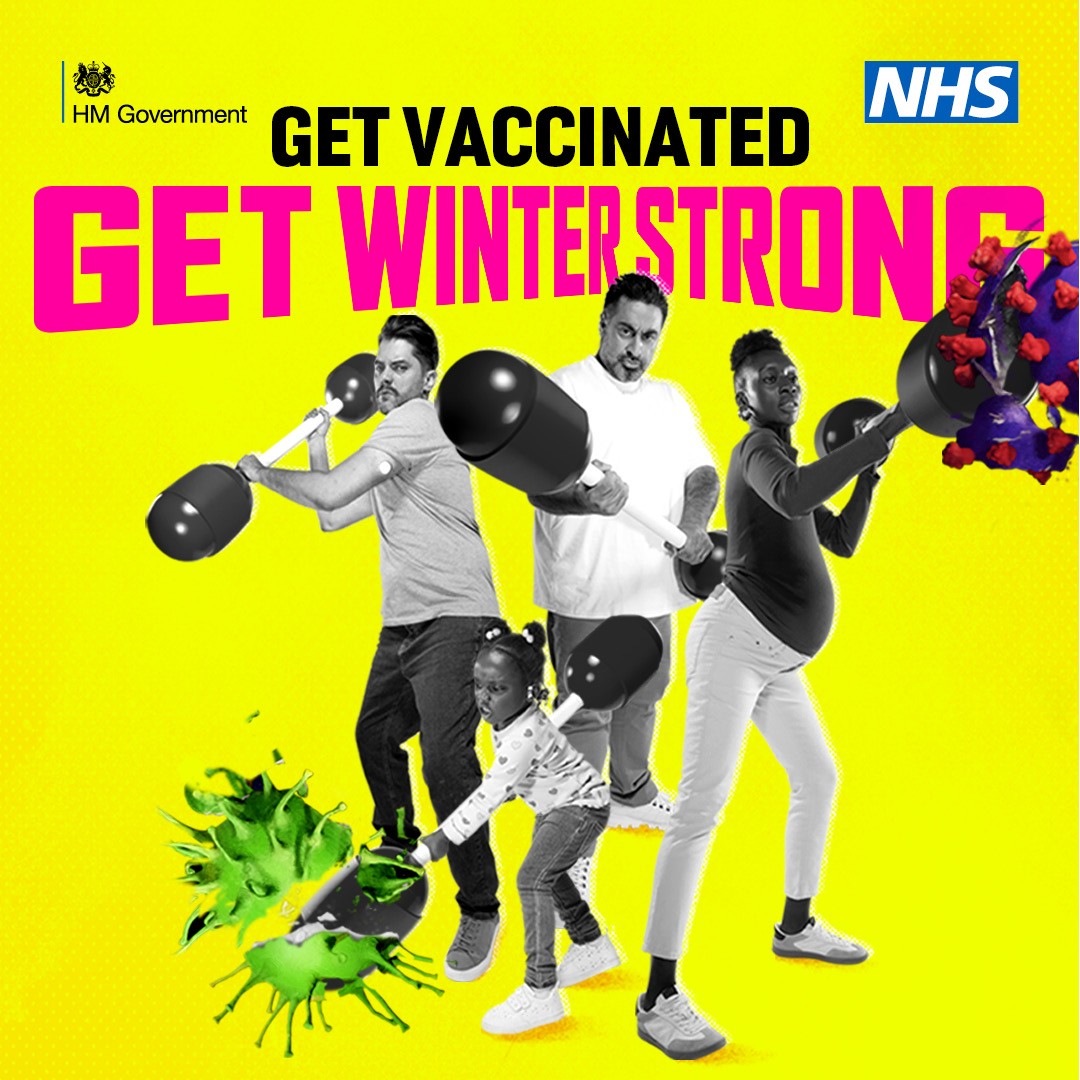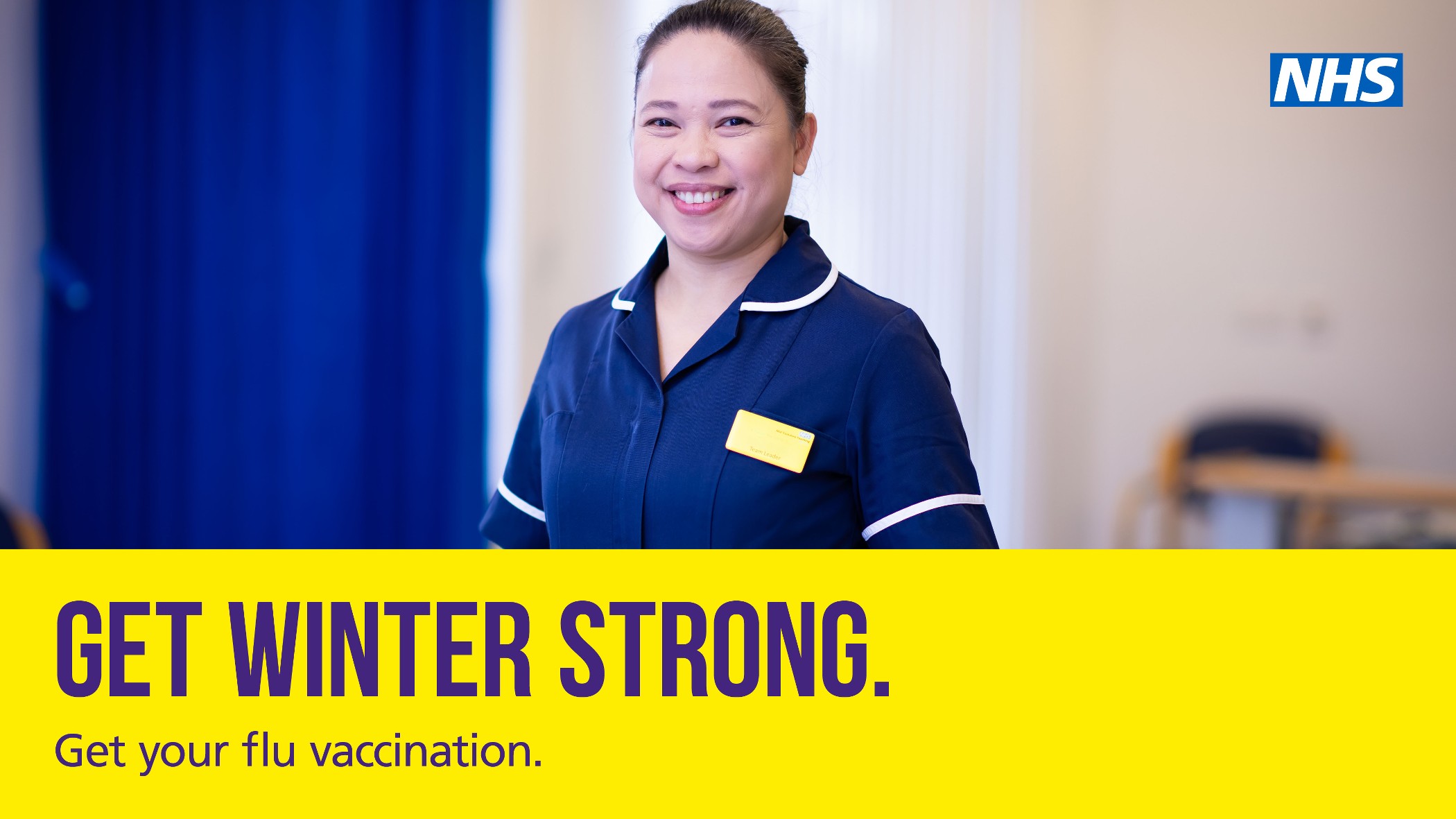Vaccination is an essential part of protecting yourself against serious illness.
Flu and COVID vaccines will be offered to residents of Herefordshire and Worcestershire this year who are at increased risk from these diseases.
To protect yourself, others, and the NHS, make sure that you get your vaccine.
FLU
Flu symptoms come on very quickly and can include:
- a sudden high temperature
- an aching body
- feeling tired or exhausted
- a dry cough
- a sore throat
- a headache
- difficulty sleeping
- loss of appetite
- diarrhoea or tummy pain
- feeling sick and being sick
The symptoms are similar for children, but they can also get pain in their ear and appear less active.
The flu vaccine is recommended for people at higher risk of getting seriously ill from flu.
It's offered on the NHS every year in autumn or early winter.
You can get the free NHS flu vaccine if you:
- are aged 65 or over (including those who will be 65 by 31 March 2025)
- have certain long-term health conditions
- are pregnant
- live in a care home
- are the main carer for an older or disabled person, or receive a carer's allowance
- live with someone who has a weakened immune system
Frontline health and social care workers can also get a flu vaccine through their employer.
If you're eligible for an NHS flu vaccine, you can:
-
book a flu vaccination appointment at a pharmacy online or in the NHS App (if you're aged 18 or over)
-
find a pharmacy that offers NHS flu vaccination (if you're aged 18 or over)
-
contact your GP surgery to book an appointment
Some people may be able to get vaccinated through their maternity service, care home, or their employer if they are a frontline health or social care worker.
COVID-19
COVID-19 symptoms can include:
- a high temperature or shivering (chills) – a high temperature means you feel hot to touch on your chest or back (you do not need to measure your temperature)
- a new, continuous cough – this means coughing a lot for more than an hour, or 3 or more coughing episodes in 24 hours
- a loss or change to your sense of smell or taste
- shortness of breath
- feeling tired or exhausted
- an aching body
- a headache
- a sore throat
- a blocked or runny nose
- loss of appetite
- diarrhoea
- feeling sick or being sick
The symptoms are very similar to symptoms of other illnesses, such as colds and flu.
Most people feel better within a few weeks, but it can take longer to recover.
For some people, it can be a more serious illness and their symptoms can last longer.
The COVID-19 vaccine is recommended for people at increased risk from COVID-19.
You may be offered a COVID-19 vaccine if you:
- are 65 or over
- are pregnant
- are aged 6 months to 64 years and have increased risk of getting seriously ill from COVID-19 because of a health condition or treatment
- frontline health and social care workers and staff working in care homes for older adults
You may be more likely to get seriously ill from COVID-19 due to a health condition, treatment or medicine, including:
- conditions that affect your breathing, such as asthma (needing a steroid inhaler or tablets), chronic obstructive pulmonary disease (COPD) or cystic fibrosis
- heart conditions, such as coronary heart disease or hypertension
- chronic kidney disease
- liver disease, such as cirrhosis or hepatitis
- chronic digestive issues, such as severe gastro-oesophageal reflux
- some conditions that affect your brain or nerves, such as Parkinson's disease, motor neurone disease, multiple sclerosis or cerebral palsy
- a learning disability
- diabetes, Addison's disease or hypopituitary syndrome
- problems with your spleen, such as sickle cell disease, or if you've had your spleen removed
- being very overweight – a body mass index (BMI) of 40 or above
- severe mental health conditions, such as schizophrenia or bipolar disorder
- some genetic disorders, such as mitochondrial disease and chromosomal conditions
- a weakened immune system due to a condition such as HIV or AIDS, or due to a treatment such as chemotherapy or steroid medicine
This list is a summary and does not cover everything. Read a full definition in tables 3 and 4 in the COVID-19 chapter of the green book on GOV.UK.
If you're eligible for the winter COVID-19 vaccine, you can:
-
book a COVID-19 vaccination appointment online or in the NHS App – you need to book your vaccination before 20 December 2024
Some people may be able to get vaccinated through a local service, such as a community pharmacy or your GP surgery, or a care home if they live in a care home.
You do not need to wait for an invitation before booking an appointment.
You can also receive a COVID vaccine from a walk-in site.
Why do I need a seasonal COVID-19 vaccine, when I have had a COVID-19 vaccine last winter?
If you are eligible for the COVID-19 vaccine based on the JCVI recommendations, it is important to top up your protection, even if you have had a vaccine or been ill with COVID-19 before, as immunity fades over time and COVID-19 viruses change each year.
The vaccines give you additional protection to that gained from previous infections. If you have had recent COVID-19 you will still get extra protection from the vaccine, but you will need to wait 4 weeks before getting vaccinated.
Is the COVID-19 vaccine safe and effective?
COVID-19 vaccination has a good safety record and gives you the best protection against the virus. Evidence from COVID-19 vaccination indicates that it reduces mortality, can reduce hospitalisation and may have some benefit in transmission. Millions of adults and children around the world have had a COVID-19 vaccine. The safety of the vaccines has been extensively reviewed in both adults and children by independent Medicines and Healthcare products Regulatory Agency (MHRA). The vaccines continue to be monitored and reports of serious side effects are very rare.
What are the common side effects of the COVID-19 vaccine?
As with your previous dose, the common side effects are the same for all COVID-19 vaccines used in the UK, and include:
- Feeling tired
- A headache, general aches or mild flu-like symptoms
- Feeling or being sick
You can rest and take paracetamol (follow the dose advice in the packaging) to help make you feel better.
Are there any serious side effects to having the COVID-19 vaccine?
Worldwide, there have also been very rare cases of inflammation of the heart called myocarditis or pericarditis reported after some vaccinations.
These cases have been seen mostly in younger men within several days after vaccination. Most of these people recovered and felt better following rest and simple treatments.
You should seek medical advice urgently if, after vaccination, you experience:
- chest pain
- shortness of breath
- feelings of having a fast-beating, fluttering, or pounding heart
These side effects are very rare and greatly outweighed by the risks of severe disease from getting COVID.
Why should health and social care professionals receive the seasonal COVID-19 vaccine?
To maintain a high level of protection through the coming winter, frontline health and social care professionals will be offered a seasonal vaccine to protect themselves and those in their care who are most at risk. With both flu and COVID-19 expected to be circulating this winter, it’s important to boost your immunity and help protect yourself and others.
Is there anyone who shouldn’t have a seasonal COVID-19 vaccine?
There are only a very small number of eligible people who should not have a seasonal dose for clinical reasons. If you have had a severe reaction to a previous dose of the vaccine you should discuss this with your doctor.
How and when will I receive my seasonal COVID-19 vaccine?
The vaccination may be offered directly by your employer or you can book by downloading the NHS App, online or by calling 119. There may also be walk-in vaccinations available your area. Find your nearest COVID-19 vaccination walk-in site at www.nhs.uk/covid-walk-in.
I’m pregnant or breastfeeding – can I get the COVID-19 vaccine?
Yes, when seasonal vaccinations are available, having the vaccine will help protect you against severe illness. Vaccination against COVID-19 is safe at any stage during pregnancy. You will be offered a vaccine that is suitable for you. If you have any questions, you can discuss having the vaccine with your GP practice or maternity team. COVID-19 vaccination is also safe when breastfeeding.
Has the COVID-19 vaccine been given to people like me?
As with any medicine, vaccines are highly regulated products. There are checks at every stage in the development and manufacturing process and continued monitoring once it has been authorised and is being used in the wider population.
Each of the vaccines are tested on tens of thousands of people across the world. They are tested on people of all age groups, including people with underlying health conditions and people from different ethnic backgrounds. The vaccine has now been given to millions of people worldwide, helping to reduce mortality, hospitalisations and slow the spread of the virus globally.
I’ve had COVID-19 already. Do I need to get the seasonal vaccine?
Getting vaccinated is just as important for those who have already had COVID-19 as it is for those who haven’t.
The COVID-19 vaccine provides additional protection, beyond that of natural immunity from previous infection alone, against serious complications of infection. You should also have some protection from the mild symptoms.
If you have had COVID-19 you will still get extra protection from the vaccine, but you will need to wait four weeks before getting vaccinated.
Will I get the seasonal COVID-19 vaccine at the same time as my flu vaccine?
Where possible, we encourage you to get both vaccines in the same appointment to save you time and ensure you are protected against both viruses. If this is not possible, we encourage you to get each vaccine as soon as you can, rather than waiting to get both at the same time.
Is it safe to have the flu and COVID-19 vaccines at the same time?
The JCVI has advised that, for most people, it is fine to have the flu and COVID-19 vaccines at the same time. You may be offered them at the same time or you may be offered, or to decide to have them, separately. We would encourage you to get both vaccinations as soon as you can and not delay.
For more information visit www.




